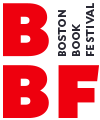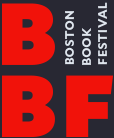Guest Post by 1C1S Author Ciera Burch
Last week, we were pleased to announce that this year’s One City One Story is “Yvonne” by Emerson MFA student Ciera Burch. You’ll be able to find your copy of Ciera’s story around Greater Boston starting in early September, but in the meantime, we’ve asked Ciera to write a guest post for our blog about the origins of her story and what led her to submit it for consideration as a 1C1S selection. Enjoy!
For me, writing “Yvonne” was an attempt to explore not only my own relationship with my grandmother, who passed away suddenly three years ago, but also the relationship between a grandparent and grandchild without the existence of the ‘3rd party’ of the parent.
Parental-child relationships are something that have fascinated me for most of my life—since my mom was a teenager when she had me, we got to grow up with each other, which allowed me to always see her as a person in her own right first and as my mother second. After my grandmother passed, I realized that there had always been a difference between her relationship with my mom and her relationship with me. She was more closed off when it came to my mom, more easily prone to anger, whereas with me she was constantly bubbly, always cooking me something or teaching me to cook for myself.
I don’t plan out my short stories, I usually just start writing, and “Yvonne” came together for me all at once: with the smells of a nursing home and an odd, anxious feeling in the pit of my stomach reserved for meeting new people. As I wrote, Celeste and Yvonne led me to the paths they needed to go down while showing me the paths that had led them to where we meet them on the first page. The connection between the two women is immensely important to me because there’s so much complexity to their feelings for one another. They’re family but they’re still figuring out what that means to them, now and going forward.
I chose this story to submit to the Boston Book Festival because in pop culture portrayals of Boston people of color are often excluded. Despite the existence of New Edition (Roxbury natives), little attention is paid to, and often little credit is given to, Boston’s nonwhite residents. With this story, my hope was that I could put black, and in Celeste’s case queer, people at the center of a narrative with universal appeal. In some way or another, I hope that people are able not only to empathize with but also relate to Yvonne and Celeste, because regardless of the different facets of their identities, they’re human with human problems and they love and hurt and worry just as deeply as anyone else.




